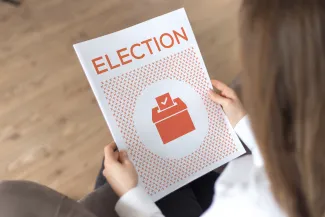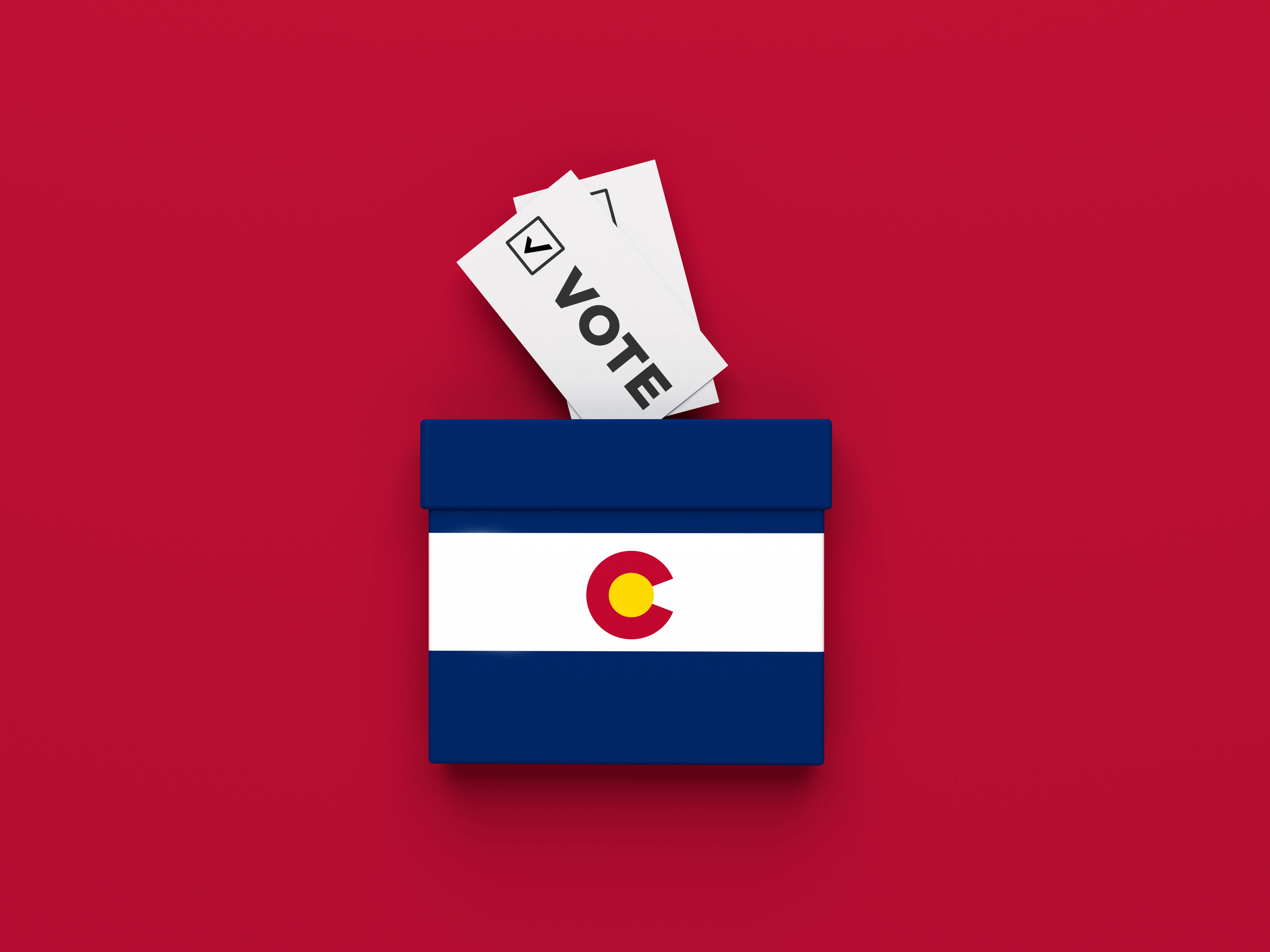
Major Colorado election overhaul battles ‘single subject’ hurdle at Title Board
(Colorado Newsline) In a conference room tucked away in a downtown Denver office building, a small group of bureaucrats and high-powered lawyers is continuing to hash out a series of proposals that could radically reshape the way Colorado conducts its elections.
Backed by centrist megadonor Kent Thiry, former CEO of Denver-based dialysis company DaVita, proponents have set out to abolish the party primary and caucus system for nominating candidates for statewide and legislative offices, replacing it with an open “all-candidate primary” and a four-candidate general election decided by ranked choice voting. The model is championed by Unite America, the Denver-based nonprofit that Thiry co-chairs. The group backed a similar measure in Alaska, which voters there approved in 2020 and which was used for the first time in 2022.
Represented by lawyers from the powerful lobbying firm Brownstein Hyatt Farber Schreck, proponents have filed dozens of different versions of their measure with the state’s Initiative Title Setting Review Board, where hearings continued this week. While several versions have won initial approval, potential challenges loom, and backers are expected to continue to tinker with their proposal in the coming weeks as they seek to draft a measure or set of measures that passes constitutional muster.

Commonly known as the Title Board, the three-member panel consists of representatives designated by the Colorado secretary of state, attorney general and the General Assembly’s Office of Legislative Legal Services. The board is tasked with determining whether a proposed initiative meets a constitutional requirement that ballot measures address only a single subject, and with drafting a clear “title,” a one-sentence description of the measure that could appear on ballots in November. Once approved by the Title Board, initiative backers must gather 124,238 signatures from registered voters to qualify for the ballot.
But the sweeping election overhaul is already drawing criticism from all sides. Far-right Republicans like U.S. Rep. Lauren Boebert of Windsor have decried ranked choice voting as a “scheme” to “rig” elections, and GOP lawmakers in some states have even moved to ban the practice.
Ranked choice voting, also known as instant-runoff voting, is a system in which voters rank the candidates in order of preference. If no candidate receives a majority of first-choice votes, the candidate with the fewest first-choice votes is eliminated, and those ballots’ second-choice votes are tallied. The process is repeated until one candidate receives a majority.
Colorado Democrats are also skeptical of the Thiry-backed effort and its all-candidate primary, which would allow candidates to qualify for the primary ballot only through signature-gathering efforts. Eliminating the option to qualify through the party assembly process, critics say, would privilege wealthy candidates who can afford to hire firms that specialize in petition drives. Members of both parties have speculated that a possible motive behind the reforms is to make it easier for Thiry — who publicly mulled a run for governor as a Republican in 2017, then formally switched his registration to unaffiliated later that year — to mount a gubernatorial bid in 2026.
Martha Tierney, a Democratic attorney, has helped lead an effort to oppose the measures at the Title Board, arguing that the proposed elimination of party primaries alongside the introduction of ranked choice voting violates the single-subject requirement.
“These policies are not interrelated, nor is one an implementing provision of the other,” Tierney wrote in a Jan. 25 objection. “They are two highly complex policy changes regarding separate types of elections lumped together under the same broad title.”
Charges of ‘logrolling’
Though the Title Board had approved several versions of the initiative at its January hearing, it reversed itself weeks later, following Tierney’s appeal, and sent proponents back to the drawing board.
At issue are charges of “logrolling” — the practice of lumping together multiple policies that wouldn’t pass muster with voters on their own. Thiry’s election overhaul, Tierney wrote, takes the “highly contentious” issue of eliminating party primaries and “combines it with the potentially more voter-friendly change of (ranked choice voting) in the general election.”
Proponents returned to the Title Board Wednesday with a version of their proposal that would make statutory changes, rather than amend the state Constitution, and sought to closely “mirror” existing provisions of the state’s election code. That once again satisfied the board, which voted unanimously that the measure meets the single-subject requirement — for now. Opponents must file a motion for the board to rehear its decision by next week.

“Frankly, I’m sitting here and I’ve been on every side of it,” said Christy Chase, deputy director of the Office of Legislative Legal Services, said prior to the vote. “I hear the arguments of why the whole scheme is interrelated and connected.”
“I’ve been on every side, on the fence, underneath it,” agreed board chair Theresa Conley, strategic legal and policy manager for the Colorado secretary of state’s office.
Protracted disputes over the single-subject requirement often end up being adjudicated by the Colorado Supreme Court. If proponents are unable to combine the primary and general election changes in a single measure, they said during a continued hearing on Thursday, they’re prepared to run separate measures that would only go into effect if both are approved.
“We want to see them enacted together,” Sarah Mercer, an attorney representing the proponents, told the Title Board. “To have one or the other, from our perspective, is not the policy goal.”
Dozens of versions tested
The 2024 measures are the latest in a series of ballot initiatives Thiry has bankrolled to reform Colorado’s election laws. In 2016, voters approved two measures he sponsored to reestablish presidential primary elections and to allow unaffiliated voters to participate in primary elections. Two years later, he successfully backed a pair of anti-gerrymandering amendments that established independent, nonpartisan commissions to oversee Colorado’s redistricting processes for Congress and the state Legislature.
Alongside the primary and general election changes, Thiry has backed ballot initiatives this year to abolish the use of party vacancy committees to fill vacant seats in the state Legislature, and to require “timely reporting” of election results on election night.
Overall, more than 40 different versions of the election reform measure have been filed with the Title Board, varying on questions like whether or not the new system would apply to federal offices and when the changes would go into effect.
Though it’s common for initiative sponsors to test out several different versions of their proposal at the Title Board as they seek to overcome the single-subject hurdle, the volume of the Thiry camp’s submissions drew a rebuke from Conley on Wednesday after the group submitted a flurry of late technical changes prior to the hearing.
“You’re a pretty sophisticated group. I’m just asking you to please do better,” Conley said.
“You’re really abusing the patience of the Title Board and of this initiative process,” she added. “It’s just unfair to the other proponents.”
Colorado Newsline is part of States Newsroom, a nonprofit news network supported by grants and a coalition of donors as a 501c(3) public charity. Colorado Newsline maintains editorial independence. Contact Editor Quentin Young for questions: info@coloradonewsline.com. Follow Colorado Newsline on Facebook and Twitter.
















